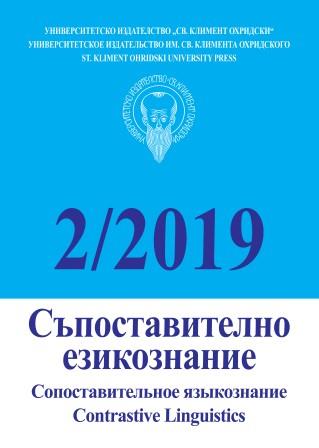Zur Problematik des deutschen Verbs scheinen als subjekt- satzselegierendes Prädikat
On the problem of the German verb scheinen as a subject-sentence-selective predicate
Author(s): Emilia BaschevaSubject(s): Language and Literature Studies, Applied Linguistics, Philology, Translation Studies
Published by: Софийски университет »Св. Климент Охридски«
Keywords: the german verb scheinen; subject clause; canonical criteria; prefield test; correlate es; epistemic modality
Summary/Abstract: The object of investigation is the construction es scheint (mir), dass/als (ob) in present day German, which in actual syntactic researches is consedered to be problematic with regard to the selection of a subject clause. The paper offers an analysis of the controversial and non-categorical approaches to this topic. On the basis of a self-compiled corpus the constructional variety of scheinen is systematized: it functions as a semi-modal, as a copular and as a main verb. It is argued, on the basis of both structural and semantic considerations, that the construction with the main verb selects a subject clause: es is interpreted as its correlate; the non-conformist behaviour of the subject clause in relation to the ‘canonical’ structural criterion for the complement clause in German, the prefield test (Vorfeldprobe), should be accounted for by semantic mechanisms, reflecting the semantics of scheinen as a marker of epistemic modality. The analysis reveals that the blocked or restricted to marked constructions topicalisation of the subject clause is carachteristic not only of scheinen but also appears with other predicates which mark the factitivity of the proposition.
Journal: Съпоставително езикознание / Сопоставительное языкознание
- Issue Year: 2019
- Issue No: 2
- Page Range: 25-45
- Page Count: 21
- Language: German
- Content File-PDF

